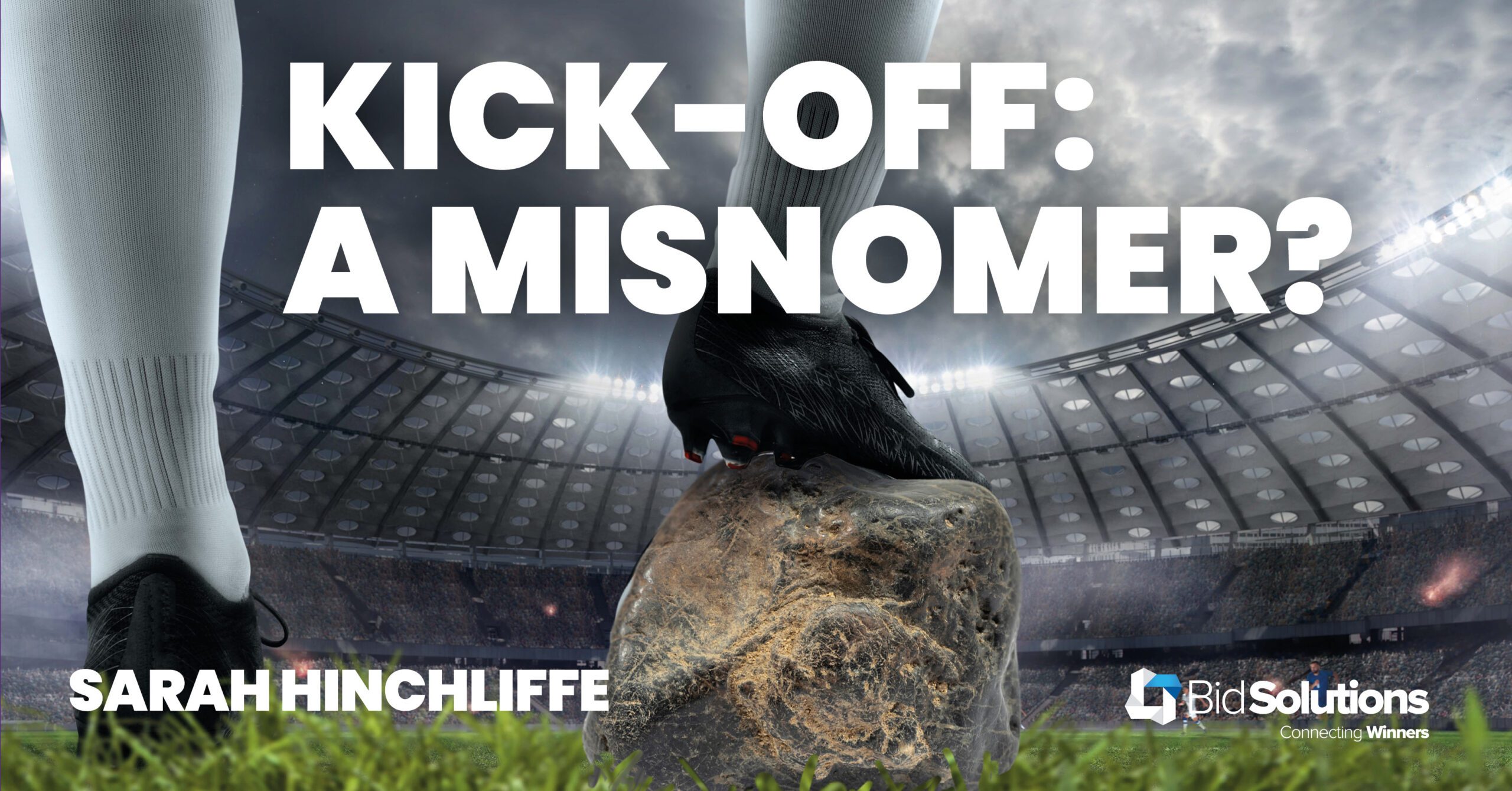
Let’s get this straight up front.
In the bid world, a kick-off doesn’t start the proceedings. It doesn’t happen on the day the Invitation to Tender (ITT) or Request for Proposal (RFP) arrives. And a kick-off meeting isn’t:
- An ITT/RFP assessment meeting
- A qualification meeting
- A go/no-go decision point
- A win strategy review
- A solution design session
- A competitor analysis
- A resourcing meeting
- A bid budget approval meeting
In fact, it’s not a review, discussion or decision session of any sort. All that gets done elsewhere, before the kick-off.
So what is a kick-off meeting?
It’s a briefing meeting. Simples. And it happens anytime from 10% to 20% of the way through your response timeline. To put this in context, let’s explore an example journey from ITT/RFP arrival to kick-off from the bid manager’s perspective.
When an ITT/RFP arrives, you take ownership. You work with a core team of people – one empowered representative from each part of your business. For example, a commercial lead, a technical lead and a delivery lead. Together, you analyse the tender documents to identify risks and showstoppers, draft a high-level solution and check the win strategy. Optionally, you set a provisional date for a kick-off.
Next, you get approval to proceed (or not!), along with a bid budget and any additional resources necessary to complete solutioneering and develop the proposal. Only after a ‘go’ decision do you set or confirm the kick-off date. But there’s still work to do.
You now progress the proposal strategy to fine-tune the winning story, build a plan, design the response structure (with content plans where appropriate) and prepare the agenda and artefacts for kick-off.
You invite everyone who will be involved in the proposal process including management sponsor(s), proposal contributors, reviewers and approvers. You may invite third parties or run a separate kick-off for them. You pull together a presentation pack covering the opportunity and the win strategy with the complete plan of what needs to be done, when, by whom, how and where.
You run the meeting – no more than two hours – possibly splitting it into two halves with the first half to set the context and a high-level plan, and the second half a detailed explanation of the next steps for contributors. You use the session to establish yourself as a competent and authoritative leader who will drive the process from now until proposal submission. You make sure everyone understands their role, responsibilities and timescales and the key messages.
There you have it.
Preparing and running a well-structured kick-off meeting helps to set the tone for managing the team over the response period. Professionalism, discipline and control from the early stages will motivate and inform everyone and increase your chances of producing a winning proposal on time.
This article was written by Sarah Hinchliffe .
Sarah labels herself a ‘Storyteller, Organiser, Timekeeper’ – three things that come naturally to her. After a 30-year sales career in the IT industry, where she learnt every popular sales methodology and sold millions of pounds of software and services, Sarah decided to share what she’d learnt about winning business using great stories, a systematic approach and consistently delivering on time. She continues learning and sharing through her freelance consulting work and volunteering as a writer, speaker and mentor.

